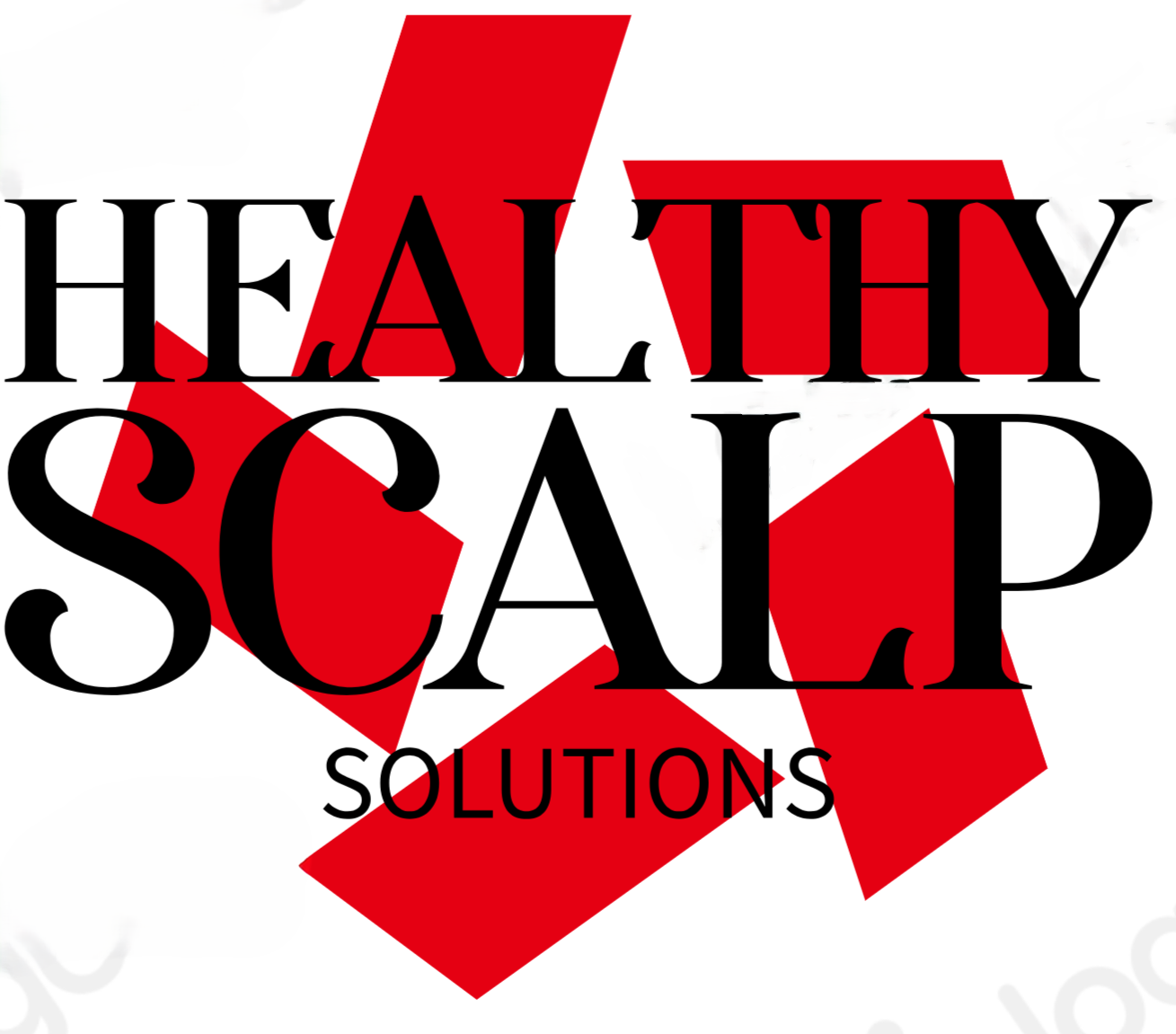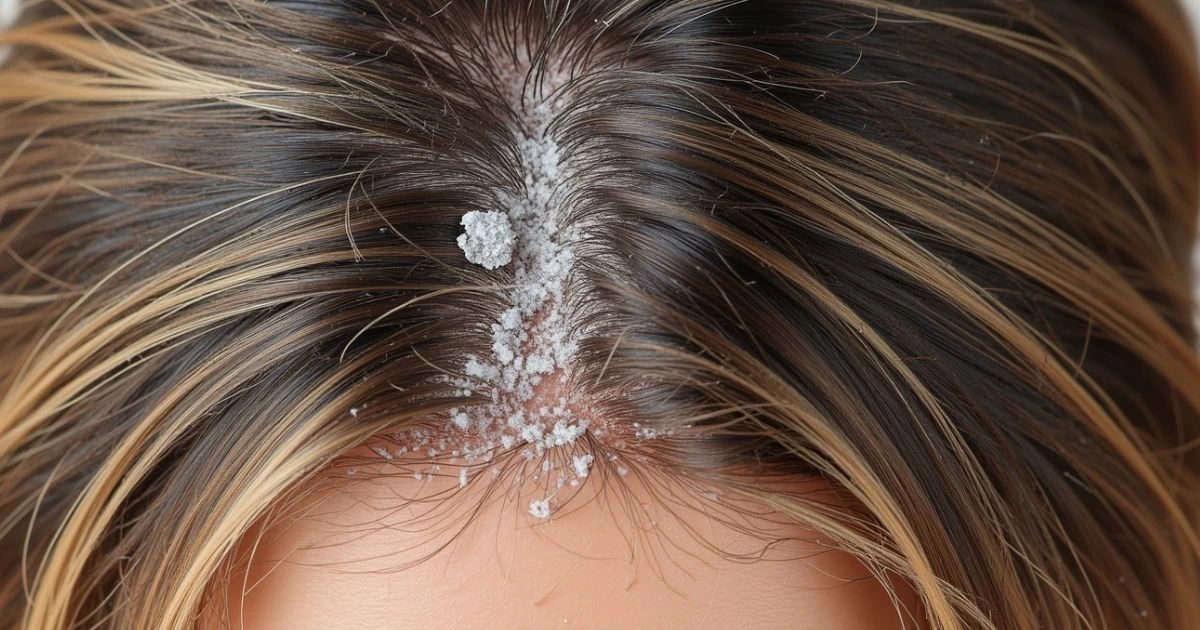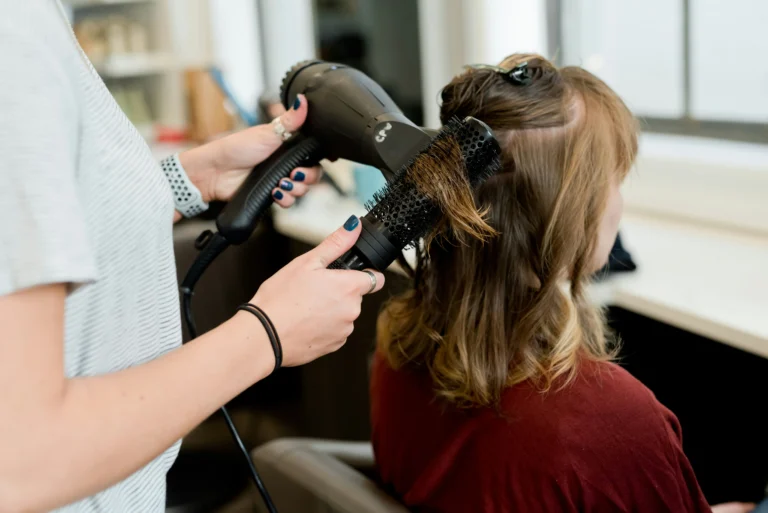“Can Dandruff Cause Hair Loss? Shocking Facts to Know in 2025!”
Many people wonder if dandruff can cause hair loss. Seeing flakes on your shoulders and thinning hair together can be confusing. This article will explain the science behind dandruff and hair loss, showing if they are connected.
If you have an itchy scalp or are losing hair, knowing the link between dandruff and hair loss is important. We’ll look at how scalp health affects hair growth. We’ll also debunk myths and share effective ways to tackle both problems. This guide uses research to answer your questions.
Key Takeaways
- Flakes alone don’t directly cause hair loss, but severe scalp conditions linked to dandruff might.
- Over 50 million Americans experience dandruff, often alongside hair thinning concerns.
- Severe cases like seborrheic dermatitis can weaken hair follicles if untreated.
- Regular care with medicated shampoos like ketoconazole or pyrithione zinc may reduce risks.
- Ignoring persistent dandruff could worsen scalp health, indirectly affecting hair health.
Understanding Dandruff and Its Causes
Exploring the connection between dandruff and hair loss begins with understanding its roots. The question can dandruff cause hair loss is central to this inquiry. First, we must grasp what dandruff is. We’ll delve into its biology, triggers, and types to see how they affect scalp health.
What Exactly Is Dandruff?
Dead skin cells on your scalp constantly renew. But dandruff occurs when this process speeds up. The Malassezia yeast, which naturally lives on your skin, becomes too active. It feeds on oils, leading to inflammation.
This imbalance causes thick, oily flakes to stick to your hair and scalp. You might also notice redness or itching. If left unchecked, this can harm hair follicles.
Common Causes of Dandruff
- Fungal overgrowth: Malassezia grows when skin oils build up
- Hormonal shifts: Changes in androgens during puberty or menopause affect oil production
- Environmental factors: Cold weather dries out the skin, while stress weakens scalp defenses
- Product buildup: Shampoos or gels clogging pores trap dead cells
Different Types of Dandruff Conditions
Dandruff can vary in severity and cause. Here are some common types:
| Type | Key Traits | Potential Hair Loss Risk |
|---|---|---|
| Common Dandruff | White flakes, occasional itching | Low (usually temporary) |
| Seborrheic Dermatitis | Yellowish scales, red patches, persistent inflammation | Moderate (linked to chronic irritation) |
| Contact Dermatitis | Redness, swelling from chemical exposure | Varies (depends on allergen exposure) |
Severe cases like seborrheic dermatitis need special care. This is to avoid long-term damage, including hair loss concerns.
The Connection Between Scalp Health and Hair Growth
Your scalp is where hair follicles grow. Just like plants need good soil, your hair needs a healthy scalp. If your scalp isn’t balanced, hair follicles can’t work right, leading to hair loss.
How Your Scalp Affects Hair Follicles
Healthy follicles need tiny blood vessels for nutrients and oxygen. But, inflammation or irritation from dandruff can block these. This weakens hair and causes it to thin or fall out.
Think of it like a garden. Without care, even strong seeds won’t grow.
The Role of Sebum Production
Your scalp naturally makes sebum, an oil that protects hair. But, too little or too much oil is bad. Too little makes hair dry and weak, while too much clogs pores.
This can trap dead skin cells, slowing hair growth or causing loss.
Signs of an Unhealthy Scalp
- Redness or flaking beyond normal dandruff
- Persistent itchy scalp that won’t subside
- Tenderness when brushing or touching hair
- Unusual oiliness or greasiness
- Small bumps or scabs near follicles
Ignoring these signs can make problems worse. Taking care of an itchy scalp or redness early can prevent long-term damage.
Can Dandruff Cause Hair Loss? The Scientific Answer
Many people wonder if can dandruff cause hair loss. The answer is not simple. Dandruff itself doesn’t harm hair follicles permanently. But, severe cases can harm hair health indirectly.
Studies show that long-term inflammation from dandruff irritates the scalp. This can disrupt the hair growth cycle. This disruption may lead to temporary hair loss known as telogen effluvium.
Here’s how it works:
- Inflammation weakens hair roots, causing premature shedding
- Scratching irritated skin can physically pull hairs out
- Chronic conditions like seborrheic dermatitis (a severe dandruff form) create a harsh environment for follicles
Experts say most hair loss from dandruff is temporary. “Inflammation from dandruff doesn’t kill hair follicles permanently,” says Dr. Lisa Chen, a board-certified dermatologist. “But it can slow growth cycles, making thinning noticeable.”
“The key distinction is whether dandruff is a symptom of a deeper issue like fungal overgrowth or hormonal imbalance,” adds Dr. Michael Torres, author of Scalp Health Essentials. “Addressing root causes often reverses both dandruff and associated shedding.”
If you notice flaking paired with hair thinning, check your scalp’s health. Look for redness, persistent itching, or oily patches. These signs may mean you need medical care.
Regular use of anti-dandruff shampoos helps manage symptoms. These shampoos contain zinc pyrithione or ketoconazole.
Remember, can dandruff cause hair loss depends on severity and treatment. Mild cases rarely harm long-term hair health. But, ignoring it for too long increases risks. Early treatment keeps your scalp and hair healthy.
Seborrheic Dermatitis and Its Impact on Hair
Seborrheic dermatitis is a long-term skin issue found in oily areas, like the scalp. It’s different from regular dandruff because it causes inflammation and yeast growth. This is often linked to how our immune system reacts.
What Is Seborrheic Dermatitis?
This condition leads to red patches, oily scales, and itching. It’s caused by a yeast called Malassezia mixing with skin oils. While it doesn’t harm hair follicles permanently, long-term irritation can cause seborrheic dermatitis hair loss.
Does Seborrheic Dermatitis Cause Hair Loss?
Does seborrheic dermatitis cause hair loss? Yes, but it’s temporary. The inflammation stresses hair follicles, making them grow shorter. This results in shedding, but hair usually grows back once the condition is treated. Severe itching or scratching can damage hair shafts.
How to Identify Seborrheic Dermatitis
- Yellowish, oily flakes clumped in patches
- Redness spreading beyond the scalp (ears, eyebrows, chest)
- Burning or tingling sensations
If you see these signs, stay away from harsh treatments. See a dermatologist for antifungal shampoos or creams. They can help reduce inflammation and stop more seborrheic dermatitis hair loss.
How Scratching and Itchy Scalp Contribute to Hair Thinning
Scratching an itchy scalp might feel good at first, but it harms your hair follicles. The friction from your nails can pull hair out early, breaking it and making hair loss more visible. This leads to a cycle where scratching makes the itch worse, causing more damage.
Scratching in your sleep is a hidden threat. Even if you don’t notice it, rubbing your head can hurt your hair roots. Keeping your nails short or wearing soft gloves at night can help prevent damage. Long-term inflammation from scratching can also stop hair from growing, leading to thinning.
Break the cycle with these steps:
- Use anti-itch shampoos containing zinc pyrithione or salicylic acid
- Trim nails regularly to reduce surface abrasion
- Apply a cold compress to calm inflamed skin
- Try stress-reduction techniques—stress hormones worsen itch triggers
- Replace scratching with distractions like squeezing a stress ball
Fixing the itch at its source stops the cycle. Using treatments like ketoconazole shampoos along with good habits can protect your hair’s health for a long time.
Dry Scalp vs. Dandruff: Different Conditions With Similar Symptoms
Seeing flakes in your hair can be scary. But, not all scalp problems are the same. Dry scalp thinning hair and dandruff share some signs, but they have different causes and treatments. Getting them wrong can harm your hair more.
Identifying Dry Scalp vs. Dandruff
Let’s break it down:
- Dry Scalp: Small, powdery flakes from not enough moisture. Cold weather, too much washing, or styling products can cause it. Your scalp feels tight, not oily.
- Dandruff: Greasy, thick flakes from too much yeast and oil. They stick to your hair and skin, and your scalp might be red.
Dry Scalp and Thinning Hair: Is There a Link?
Thinning hair can be caused by dry scalp. Dry skin weakens hair follicles, making hair brittle. Breakage from scratching or dryness can make hair look thinner, even if the roots are fine.
For example, harsh shampoos can strip away natural oils. This makes dryness and breakage worse.
“Dryness strains hair shafts, leading to visible thinning. But this isn’t true hair loss—it’s breakage you can reverse,” says Dr. Lisa Adams, a board-certified dermatologist.
Treatments are different: Dry scalp needs moisturizing products like ceramide-rich shampoos. Dandruff needs antifungals. Ignoring dryness can cause lasting damage. Spotting the difference early helps protect your hair.
Effective Treatments for Dandruff-Related Hair Problems
Starting to fix can dandruff cause hair loss means using the right treatments. Here’s how to fight flaking and protect your hair follicles.
Medicated Shampoos and Their Benefits
Using medicated shampoos regularly can stop irritation before it damages hair roots. Look for these ingredients:
- Ketoconazole (in Nizoral® shampoo) reduces fungus linked to flaking and breakage.
- Zinc pyrithione (Head & Shoulders®) fights microbes and soothes redness.
- Selenium sulfide (Selsun Blue®) slows skin cell turnover on the scalp.
Apply shampoos twice weekly, leaving them on for 5 minutes to maximize absorption.
Prescription Treatments for Severe Cases
For stubborn cases like seborrheic dermatitis hair loss, dermatologists may suggest:
- Topical corticosteroids to calm inflammation.
- Oral antifungals for deep fungal overgrowth.
- Immunomodulators like tacrolimus for autoimmune-driven flaking.
“Combining medicated shampoos with prescription therapies gives the best results,” says Dr. Lisa A. Garner, a board-certified dermatologist.
Natural Remedies Worth Trying
Try these gentle options alongside medical treatments:
- Tea tree oil (0.5% concentration) as a natural antifungal rinse.
- Aloe vera gel to soothe irritation and reduce shedding.
- Apple cider vinegar rinses to balance scalp pH, but dilute it 50/50 with water.
Always patch-test natural remedies first to avoid irritation.
Consistency is key—pair treatments with gentle brushing and avoid heat styling to support regrowth.
Preventing Dandruff and Promoting Healthy Hair Growth
Keeping your scalp balanced is crucial to avoid dry scalp thinning hair and itchy scalp and hair loss. Making small changes every day can greatly help. Start by using moisturizing products on your scalp that don’t have harsh chemicals. Look for ingredients like coconut oil or shea butter to keep your scalp moist without making your hair heavy.
- Eat foods rich in omega-3s like walnuts, flaxseeds, and salmon to strengthen your hair follicles.
- Try to manage stress through meditation or yoga. Stress hormones can make scalp irritation worse.
- Regular exercise improves blood flow to your scalp, helping to keep oil balance natural.
Having a regular hair care routine is important. Use gentle, sulfate-free shampoos twice a week and condition the ends. Don’t wash your hair too much, as it can take away natural oils. Exfoliate once a week with a soft towel or a mild scrub to get rid of dead skin without harming your follicles.
| Ingredient to Avoid | Why to Avoid |
|---|---|
| Alcohol-based products | Dries out the scalp, worsening dryness |
| Strong fragrances | Irritate sensitive scalps |
| Lauril sulfate | Can strip natural oils |
Keep your scalp safe from extreme weather. Wear hats in cold weather and use sunscreen sprays for the scalp in sunny weather. Regular haircuts prevent split ends that can pull on your hair roots, reducing thinning. By following these steps, you can build a strong foundation for your scalp and hair health.
When to See a Dermatologist About Scalp Issues
If you’ve tried over-the-counter treatments for weeks but still have itchy scalp and hair loss, it’s time to see a doctor. Symptoms like severe flaking, redness, or hair thinning might mean more than just dandruff. Here’s when you should take action.
Warning Signs That Require Medical Attention
- Scalp pain, burning, or open sores
- Does seborrheic dermatitis cause hair loss? Yes—if you see greasy, yellowish scales and rapid hair shedding
- Flaking spreading to eyebrows, ears, or chest
- Unexplained weight loss or fatigue alongside scalp issues
- Hair loss in patches or bald spots
What to Expect During a Dermatologist Visit
At your appointment, the doctor will look at your scalp with a dermatoscope. They might take a small skin sample for lab tests or check your blood for nutritional issues. Be ready to tell them about all the products you’ve tried and when your symptoms started. They might suggest:
- Prescription shampoos with ketoconazole or salicylic acid
- Topical corticosteroid creams for inflammation
- Light therapy for severe seborrheic dermatitis cases
Seeing a doctor early can stop hair damage from getting worse. Don’t wait if home remedies don’t work in 4-6 weeks.
Debunking Common Myths About Dandruff and Hair Loss
It’s important to know the truth about dandruff and hair loss. Let’s clear up the most common myths. This way, we can avoid harmful practices and wrong beliefs.
Myth vs. Fact: What the Research Shows
Can dandruff cause hair loss? Not directly, but severe cases of seborrheic dermatitis hair loss might play a role. Dry scalp thinning hair isn’t always because of dandruff. Poor hygiene doesn’t cause dandruff, even though many think it does.
Overwashing won’t fix dandruff; medicated shampoos are more effective. Shaking off these myths helps us find real solutions.
Dangerous Remedies to Avoid
- Avoid undiluted essential oils—they can burn your scalp.
- Steer clear of bleach or vinegar rinses; they strip natural oils, worsening dryness.
- Never use abrasive brushes or tools; they damage follicles, accelerating thinning.
Myth-based fixes like “miracle” oils or DIY scrubs can harm more than help. Stick to FDA-approved treatments like ketoconazole shampoos or prescription therapies for seborrheic dermatitis hair loss.
Conclusion
It’s important to tackle dandruff early to avoid hair problems. The question can dandruff cause hair loss is common, but science says regular dandruff doesn’t harm hair follicles for good. But, severe cases or constant scratching can make your scalp weak, causing hair to thin out temporarily.
Understanding your dandruff type is key to protecting your hair. It could be dry scalp, fungal growth, or allergies. There are many ways to fight dandruff, from medicated shampoos to natural remedies.
Medicated shampoos with selenium sulfide or coal tar help a lot. Natural treatments like apple cider vinegar or coconut oil also work well. Using these regularly can stop dandruff from getting worse and protect your hair follicles.
Your scalp’s health is crucial for strong hair. Ignoring dandruff can lead to hair thinning. Keep your scalp clean, avoid tight hairstyles, and watch how your scalp reacts to products.
If dandruff doesn’t go away with over-the-counter treatments, see a dermatologist. They can give you stronger treatments like corticosteroids or biotin supplements.
Prevention and early action are your best defenses. Use medicated shampoos, make lifestyle changes, and get professional advice. Managing dandruff is not just about looks. It’s about keeping your scalp healthy for long-term hair growth.
FAQ
Can dandruff actually cause hair loss?
Dandruff itself doesn’t usually cause permanent hair loss. But, severe cases like seborrheic dermatitis can make hair fall out temporarily. This is because of the inflammation it causes.
Also, scratching your scalp can damage hair follicles. This can make your hair thinner over time.
What is seborrheic dermatitis and how does it differ from dandruff?
Seborrheic dermatitis is a more serious version of dandruff. It has red, inflamed patches and greasy flakes. It’s caused by too much fungus on the scalp.
This condition can make hair fall out more if not treated. It can mess up the hair growth cycle.
Does seborrheic dermatitis cause hair loss?
Yes, seborrheic dermatitis can cause hair loss. The inflammation and irritation it causes can mess up the hair growth cycle. This can lead to temporary hair thinning and shedding.
It’s important to treat it quickly to keep your hair healthy.
How does an itchy scalp relate to hair thinning?
An itchy scalp can lead to a lot of scratching. This can damage hair follicles and break hair shafts. The constant itching and scratching can make the scalp more inflamed.
This can cause hair to thin over time.
What’s the difference between a dry scalp and dandruff?
A dry scalp has small, white flakes because of a lack of moisture. Dandruff has larger, oily flakes because of too much fungus and oil.
Dealing with these conditions needs different approaches. You need to moisturize for a dry scalp and use antifungal treatments for dandruff.
Can a dry scalp contribute to thinning hair?
Yes, a dry scalp can make hair brittle. This can lead to breakage and make hair appear thinner. Even though hair follicles might be healthy, keeping hair moisturized is key to prevent damage.
What treatments are effective for dandruff-related hair issues?
Good treatments for dandruff include medicated shampoos with ingredients like ketoconazole, pyrithione zinc, or salicylic acid. For severe cases or seborrheic dermatitis, you might need prescription treatments. Natural remedies like tea tree oil can also help.
When should I see a dermatologist for my scalp issues?
You should see a dermatologist if you have severe itching, painful sores, or a lot of hair loss. If your symptoms don’t get better with over-the-counter treatments, it’s time to see a professional. They can help find the cause of your problems.
What common myths about dandruff and hair loss should I be aware of?
Some people think dandruff is caused by poor hygiene. But, regular cleaning can help manage it. Also, avoid using dangerous DIY remedies that can make things worse.




